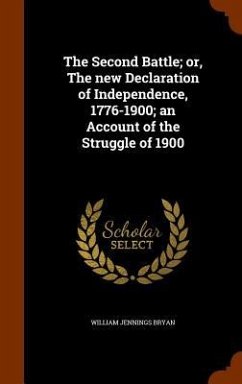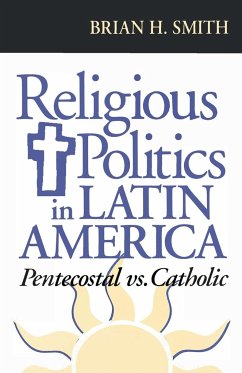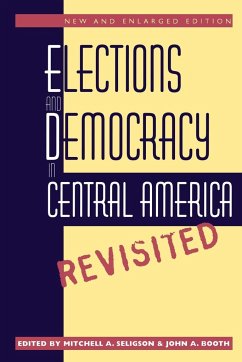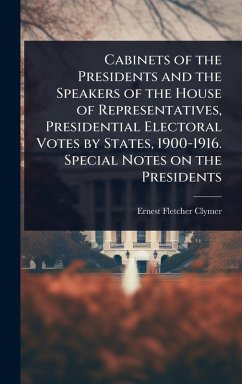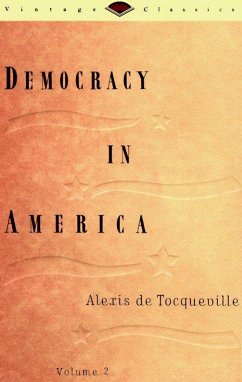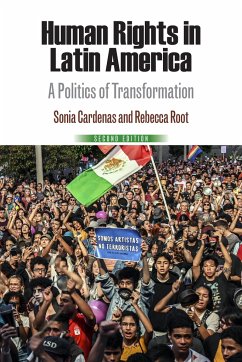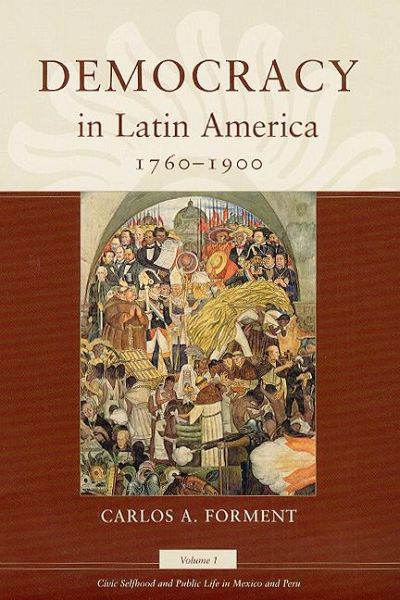
Democracy in Latin America, 1760-1900
Volume 1, Civic Selfhood and Public Life in Mexico and Peru Volume 1

PAYBACK Punkte
29 °P sammeln!
Carlos Forment's aim in this highly ambitious work is to write the book that Tocqueville would have written had he traveled to Latin America instead of the United States. Drawing on an astonishing level of research, Forment pored over countless newspapers, partisan pamphlets, tabloids, journals, private letters, and travelogues to show in this study how citizens of Latin America established strong democratic traditions in their countries through the practice of democracy in their everyday lives. This first volume of Democracy in Latin America considers the development of democratic life in Mex...
Carlos Forment's aim in this highly ambitious work is to write the book that Tocqueville would have written had he traveled to Latin America instead of the United States. Drawing on an astonishing level of research, Forment pored over countless newspapers, partisan pamphlets, tabloids, journals, private letters, and travelogues to show in this study how citizens of Latin America established strong democratic traditions in their countries through the practice of democracy in their everyday lives. This first volume of Democracy in Latin America considers the development of democratic life in Mexico and Peru from independence to the late 1890s. Forment traces the emergence of hundreds of political, economic, and civic associations run by citizens in both nations and shows how these organizations became models of and for democracy in the face of dictatorship and immense economic hardship. His is the first book to show the presence in Latin America of civic democracy, something that gave men and women in that region an alternative to market- and state-centered forms of life. In looking beneath institutions of government to uncover local and civil organizations in public life, Forment ultimately uncovers a tradition of edification and inculcation that shaped democratic practices in Latin America profoundly. This tradition, he reveals, was stronger in Mexico than in Peru, but its basic outlines were similar in both nations and included a unique form of what Forment calls Civic Catholicism in order to distinguish itself from civic republicanism, the dominant political model throughout the rest of the Western world.




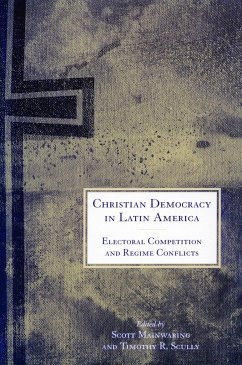
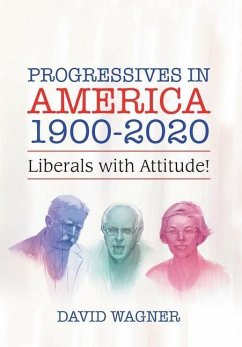
![Record of the Roblin Administration [microform]: 1900-1909: Ten Years of Progressive Government Cover Record of the Roblin Administration [microform]: 1900-1909: Ten Years of Progressive Government](https://bilder.buecher.de/produkte/65/65514/65514798n.jpg)
